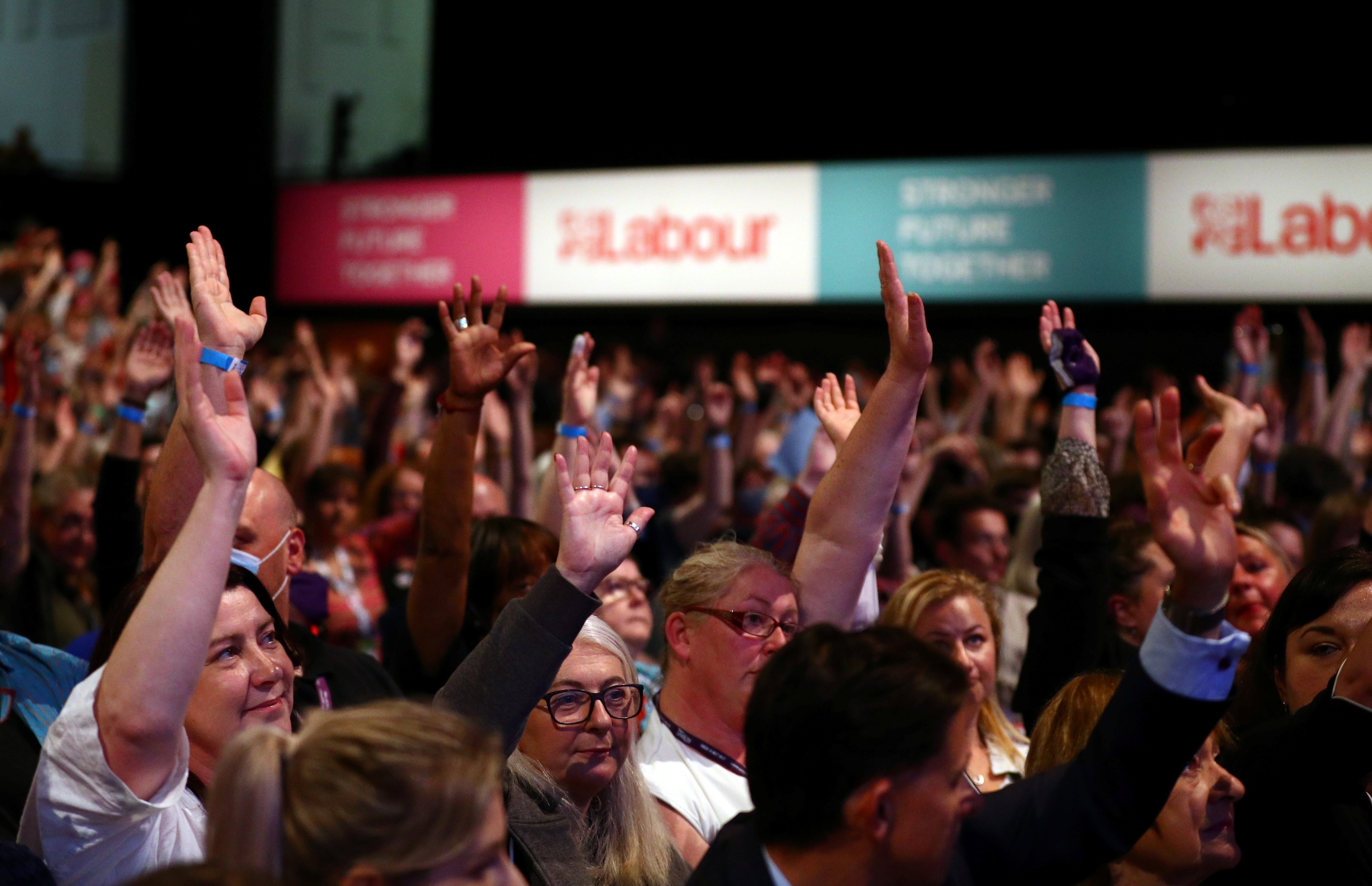Your support helps us to tell the story
From reproductive rights to climate change to Big Tech, The Independent is on the ground when the story is developing. Whether it's investigating the financials of Elon Musk's pro-Trump PAC or producing our latest documentary, 'The A Word', which shines a light on the American women fighting for reproductive rights, we know how important it is to parse out the facts from the messaging.
At such a critical moment in US history, we need reporters on the ground. Your donation allows us to keep sending journalists to speak to both sides of the story.
The Independent is trusted by Americans across the entire political spectrum. And unlike many other quality news outlets, we choose not to lock Americans out of our reporting and analysis with paywalls. We believe quality journalism should be available to everyone, paid for by those who can afford it.
Your support makes all the difference.Trade unions have blocked Labour from campaigning for proportional representation after a tight vote at the party's conference in Brighton.
Delegates sent by members to the gathering overwhelmingly backed a motion in favour of electoral reform by 79.5 per cent to 20.49 per cent.
But the vast majority of delegates sent by trade unions voted against the plan, meaning the motion was lost by a total of 42 per cent to 57 per cent.
In a statement, Labour for a New Democracy, which backed the push to support PR, said they had "won the argument" if not the vote.
And they blasted Keir Starmer for not engaging on the issue.
"One thing is clear from today’s vote – Labour Party members are overwhelmingly in support of proportional representation," a spokesperson for the campaign group said.
"After unprecedented support from local parties in backing motions calling for reform now we see that 80 per cent of local party delegates backed reform on conference floor. This in itself is a historic victory for equal votes – and now the Labour Party leadership must listen."
The spokesperson added: "We have won the argument with the Labour membership – both the debate and the result showed almost no support for the broken status quo.
"But we can also see we have not yet won the argument elsewhere in our movement. Hundreds of trade unionists play a key role in our campaign, but despite this most unions do not yet back reform. The truth is, if the Leadership had engaged with this unifying policy as intensively as they pushed their own proposed rule changes, PR would now be Labour policy.
"The Labour Party membership is united behind the drive to make votes count for all. It is unsustainable for any party to have policy at odds with the values of its members. Our campaign will continue.
"We are determined Labour must go forward to the next General Election with a firm promise that it will support PR, replace our rotten electoral system and mend our broken democracy."
Under proportional representation seats in parliament would be distributed in proportion to how many votes a party had won. PR systems are widely used elsewhere in Europe and around the world, with Britain's first past the post system unusual in global terms.
The Liberal Democrats and Greens have long supported changing the voting system as policy. A switch to PR would likely enfranchise voters for smaller parties, who tend not to be resented under FPTP.
Lib Dem leader Ed Davey said: “This is deeply disappointing. We can only build a better politics and a fairer country with a fairer electoral system. We will keep working with the many in the Labour Party and across all parties who want to see a fairer electoral system.”
Labour previously backed PR in the early days of the Blair government but the policy was kicked into the long grass after internal opposition.

Join our commenting forum
Join thought-provoking conversations, follow other Independent readers and see their replies
Comments